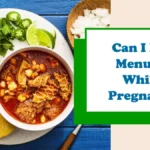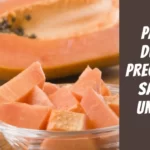
Can Pregnant Women Eat Pho? – Yes.
Pho (pronounced “fuh”) is a popular Vietnamese noodle soup that has become beloved around the world for its complex and addictive flavors. Pho features a light, aromatic broth with rice noodles, herbs, and meat. It’s considered Vietnam’s national dish.
Pho has a long and storied history in Vietnam. While its exact origins are debated, Pho likely originated from Nam Dinh province in Northern Vietnam in the early 20th century. Many historians speculate that Pho emerged as a result of French colonial influence combining traditional Vietnamese ingredients with elements of the French beef stew Pot-au-feu.
The name “pho” comes from the Vietnamese word for rice noodles (phở). It’s also sometimes referred to as “phở bò” which means “beef pho.” While beef is now the most common protein, Pho can also be made with chicken (phở gà) or seafood.
Broth is the soul of pho. Traditional Pho broth takes hours to make, simmering beef or chicken bones with charred onions, ginger, star anise, clove, cinnamon and other warm spices to create a deeply savory, amber-hued broth. It’s lightly seasoned with fish sauce, rock sugar, and black pepper. Thinly sliced rare beef and rice noodles complete the classic combination.
Toppings are an important part of the pho experience. Common garnishes include bean sprouts, fresh herbs like basil or cilantro, limes, chilis, and hoisin or sriracha sauce. Pho toppings add texture, brightness, spice, and acidity to balance the rich broth.
From street food origins, Pho has become a global sensation – but remains an important part of Vietnamese cuisine and culture. Its complex flavors make it a dish to savor and share.
Can Pregnant Women Eat Pho
Yes, pregnant women can eat pho. Pho is generally safe and even healthy during pregnancy. However, pregnant women should avoid raw beef and raw sprouts, which can be contaminated with bacteria. Bean sprouts in pho are cooked thoroughly, so they are safe to eat. Pregnant women should also ensure that the meat is fully cooked and that the restaurant is cooking everything through and through. Overall, pho is a great source of protein and vegetables, and it has been enjoyed by pregnant women and families for over 100 years in Vietnam.
Nutritional Profile of Pho
Pho is a Vietnamese soup consisting of broth, rice noodles, herbs, and meat. Here is an overview of the main ingredients and nutritional values:
Broth
- Made by simmering beef or chicken bones for several hours to extract flavors, nutrients, and gelatin. Provides protein, vitamins, and minerals.
- Often aromatic spices like star anise, cinnamon, and fennel are added. These provide phytonutrients and anti-inflammatory benefits.
Rice Noodles
- Made from rice flour and water. Rice noodles provide carbs and a small amount of protein.
- Have a low glycemic index, meaning they don’t spike blood sugar levels as much as other noodles. Better for diabetes management.
Herbs and Veggies
- Herbs like basil, mint, cilantro add flavor as well as vitamins A, C, and K.
- Onions, scallions, and bean sprouts also boost flavor and nutrition. Provide fiber, folate, vitamin C.
Protein
- Sliced beef is traditional, but chicken, shrimp, and tofu are also common.
- Protein options supply B vitamins, iron, zinc and amino acids for tissue repair.
In summary, pho offers a nutritious blend of protein, carbs, vitamins, and minerals. The broth and veggie ingredients provide pregnant women with hydration, fiber, folate, and phytonutrients.
Benefits of Pho for Pregnant Women
Pho can be a nutritious meal option during pregnancy thanks to its high protein, iron, and other nutrient content. The broth, meat, and vegetables in pho provide many of the key vitamins and minerals needed to support fetal development and maternal health.
Protein for Baby’s Growth
Pho broth contains the protein from beef bones or chicken, while the meat adds high-quality protein like lean cuts of beef or chicken breast. Protein is essential for building all of baby’s organs, tissues, and muscles as they grow. Eating an adequate protein intake can also help pregnant women maintain muscle mass during pregnancy.
Iron to Prevent Anemia
Pho made with beef provides heme iron, the most easily absorbed type of iron. Iron is needed to make hemoglobin and deliver oxygen to the baby. Pregnant women have higher iron needs, and iron deficiency anemia is a common complication. The iron in pho helps ensure adequate iron levels to prevent anemia.
Nutrients for Development
In addition to protein and iron, pho delivers other vitamins and minerals critical during pregnancy. The broth contains calcium for baby’s bones and mom’s health. The vegetables add vitamin C, fiber, folic acid, and more. The herbs and spices also boost antioxidant content. Overall, pho provides great nourishment for baby’s development.
Concerns about Eating Pho While Pregnant
Pregnant women do have some valid concerns when it comes to eating pho. Two of the main concerns are the risk of food poisoning and mercury exposure from fish sauce.
Risk of Food Poisoning
Eating undercooked or contaminated food of any kind carries an increased risk when pregnant. Pho is no exception.
Pregnant women have suppressed immune systems and are therefore more susceptible to foodborne illnesses like salmonella, listeria, and E. coli. Eating pho at a restaurant means trusting that the ingredients were properly stored, cooked, and handled.
Some tips to reduce the risk of food poisoning include:
- Only eating at reputable, clean restaurants with high food safety standards
- Avoiding pho with raw meat, opting for well-cooked meat instead
- Reheating leftover pho to 165°F to kill any bacteria
- Avoiding unpasteurized ingredients like bean sprouts
- Practicing good hygiene like handwashing before eating
Being smart and careful when dining out on pho can help pregnant women reduce their risk of foodborne illness.
Mercury in Fish Sauce
Traditional pho recipes call for fish sauce, which adds a distinctive umami flavor. Fish sauce is made from small fish like anchovies and mackerel that are higher in mercury.
Too much mercury can be harmful during pregnancy, as it crosses the placenta and can affect the developing baby’s brain and nervous system.
To avoid excessive mercury exposure when eating pho:
- Opt for low-sodium soy sauce instead of fish sauce
- Choose pho restaurants that use purified fish sauce with reduced mercury levels
- Limit pho to once a week or less
- Avoid other high-mercury fish that same week like tuna and swordfish
By being mindful of mercury risks, pregnant women can still enjoy an occasional bowl of pho. Selecting clean restaurants and ingredients is key.
Food Safety Tips
When eating any kind of restaurant or takeout food while pregnant, it’s important to take precautions to reduce the risk of foodborne illness. Here are some tips for safely enjoying pho during pregnancy:
Avoid Cross-Contamination
- Opt for restaurants where pho broth and meat are cooked separately from fresh garnishes like basil, lime, bean sprouts. This reduces the risk of dangerous bacteria from raw meat spreading to ready-to-eat ingredients.
- Avoid adding garnishes like basil, lime, and bean sprouts until you are ready to eat. Don’t let them sit in the broth.
- Use serving chopsticks or tongs when adding garnishes instead of your personal eating utensils.
Ensure Proper Reheating
- If you are reheating leftover pho, bring it to a full rolling boil for 3-5 minutes. This helps kill any bacteria that may have developed.
- Don’t just warm up pho or let it simmer – be sure to actively boil it. Lower temperatures can allow bacteria to survive.
Order From Reputable Restaurants
- Stick to restaurants with high food safety standards and cleanliness practices. Check inspection scores if available.
- Avoid street vendors or restaurants with raw ingredients sitting out at room temperature for long periods.
Following these pho safety tips will help pregnant women avoid illness while still enjoying this popular Vietnamese noodle soup.
Modifications for Pregnancy
When eating pho while pregnant, it’s best to make some modifications to reduce any potential risks. Here are some tips:
Lower the sodium
- Opt for low-sodium broth or ask for low-sodium when ordering pho. The regular broth can be very high in sodium. Too much sodium isn’t recommended during pregnancy as it can contribute to water retention and swelling.
Avoid raw meat
- Only choose cooked meats like brisket, meatballs or roasted chicken for your pho. Raw meat increases the risk of contracting foodborne illnesses which can be especially dangerous during pregnancy.
Cook thoroughly
- If adding meat at home, cook it thoroughly until it reaches an internal temperature of 165°F. Undercooked meat can harbor harmful bacteria like salmonella and E. coli. Don’t take chances with meat that is rare or pink inside.
Following these precautions can help pregnant women safely enjoy all the flavors of pho without worrying! Focus on quality ingredients from reputable restaurants and modify the dish to fit pregnancy nutrition needs.
Portion Size Guidance
When eating pho while pregnant, it’s important to pay attention to portion sizes. Here are some general recommendations:
- 1 cup of pho broth
- 3-4 ounces of cooked lean beef or chicken
- 1 serving of rice noodles (about 1-2 cups)
- 1-2 cups of fresh vegetables like bean sprouts, basil, lime, etc.
- Avoid extras like fatty meats, excessive noodles, and salty condiments
Experts recommend limiting portion sizes of pho to 1-2 bowls per meal. The broth, meat, and noodles can quickly add up in calories and sodium. Stick to reasonable portions to keep your nutrient intake balanced.
Overeating pho could lead to excessive weight gain during pregnancy. Try sipping the broth first, then pace yourself with the noodles and meat. Stop eating when you start to feel full or satisfied. Leftovers can be refrigerated and eaten another day.
Controlling portions is key for getting the benefits of pho without overdoing it on calories, carbs, sodium and fat. Focus on quality over quantity when indulging in this Vietnamese noodle soup.
When to Avoid Eating Pho
Pho is generally considered safe and healthy to eat during pregnancy. However, there are some specific situations when it’s best for pregnant women to avoid eating pho:
Food Poisoning Risk
One of the main risks of eating pho while pregnant is the potential for food poisoning from bacteria or other contaminants. Pho restaurants with lax food safety standards may have issues like cross-contamination or improper food storage temperatures. Foodborne illnesses like E. coli, Salmonella, and Listeria can be especially dangerous in pregnancy, risking dehydration, fever, miscarriage, and preterm labor. If the pho restaurant has a questionable reputation or food handling practices, it’s safest to avoid eating there while pregnant. Stick to well-reviewed, reputable pho spots with visibly high food safety standards.
Mercury Exposure
Certain types of fish and seafood used in pho may contain high levels of mercury, such as shark or swordfish. Mercury is a neurotoxin that can cross the placenta and harm fetal brain development. To limit mercury exposure, avoid pho recipes containing risky fish. Opt for pho with lower-mercury seafood like shrimp. Check local advisories about mercury levels in fish from your area. When in doubt, ask the restaurant which seafood their pho contains before ordering.
Doctor Recommendations
Your doctor may advise avoiding pho in certain situations related to your individual pregnancy. If you have a compromised immune system or a high-risk pregnancy, your provider may recommend avoiding pho due to the small risk of foodborne illness. Those with gestational diabetes may be advised to go easy on pho, since the noodles and added sugars can cause blood sugar spikes. If you’ve been put on a low sodium diet for swelling or high blood pressure, the salty broth of pho may also be restricted. Always check with your OB/GYN about any dietary limitations before indulging in pho while pregnant. They can offer tailored advice based on your pregnancy status and medical history.
The bottom line is that for most normal, low-risk pregnancies, pho is fine to eat in moderation from a reputable source. But if you have heightened risks, food safety concerns, or a doctor’s orders to avoid pho, it’s best to abstain during pregnancy and choose another dish or cuisine. Use your best judgment, ask questions, and follow medical advice about eating pho while expecting.
Alternatives to Pho
While pho can be a nutritious and comforting choice during pregnancy, some women may prefer to avoid it or limit consumption. Here are some alternatives to enjoy instead:
Other Vietnamese Soups
Vietnam offers a delicious array of soups beyond pho. Some options include:
- Bun Bo Hue – Spicy beef noodle soup with lemongrass and shrimp paste
- Bun Rieu – Crab and tomato soup with rice vermicelli
- Canh Chua – Sweet and sour fish soup with pineapple and tomatoes
- Mi Quang – Turmeric and shrimp soup with rice noodles
These provide a similar comforting broth experience as pho, without the raw beef component. The variety of seafood, pork, chicken and vegetarian versions accommodate different dietary needs and preferences during pregnancy.
Bone Broth
Sipping on plain bone broth is an easy way to get all the benefits of pho without any of the concerns. Bone broth aids digestion, hydration and provides calcium, protein and amino acids. Look for organic, homemade or high-quality store-bought options. Sip it alone or use it as a base for soups and stews.
Rice Noodles
The tender rice noodles in pho can be enjoyed in other recipes as well. Prepare rice noodles simply with a veggie stir-fry, peanut sauce or complementary spices. Rice vermicelli noodles can also be used in a variety of Vietnamese and Southeast Asian noodle salads, stir-fries and spring rolls.
Pho alternatives provide flexibility to enjoy the comforting and nourishing aspects of this soup, while avoiding potential concerns related to pregnancy. With so many flavorful and healthy Vietnamese options, there are plenty of ways to re-create that pho experience safely.
The Verdict on Pho for Pregnant Women
In summary, pho can be a healthy and nourishing food option during pregnancy when enjoyed in moderation and with some modifications. The broth, rice noodles, and lean protein provide important nutrients, while the vegetables add fiber and vitamins. However, raw sprouts should be avoided due to food safety concerns. And limit high-sodium ingredients like soy sauce.
When it comes to caffeine in pho, trace amounts from spices are unlikely to be harmful. But avoid drinking strong tea or coffee with the soup. Also be mindful of portion sizes, as the carbohydrate-rich noodles can cause blood sugar spikes.
Overall, enjoying pho in moderation can be safe and healthy in pregnancy. Focus on getting pho from a trusted source and with lower-sodium options. Avoid raw sprouts and pair the soup with non-caffeinated beverages. With some tweaks, Vietnamese pho can be a delicious way for expecting mothers to get nutrients and satisfy cravings.












